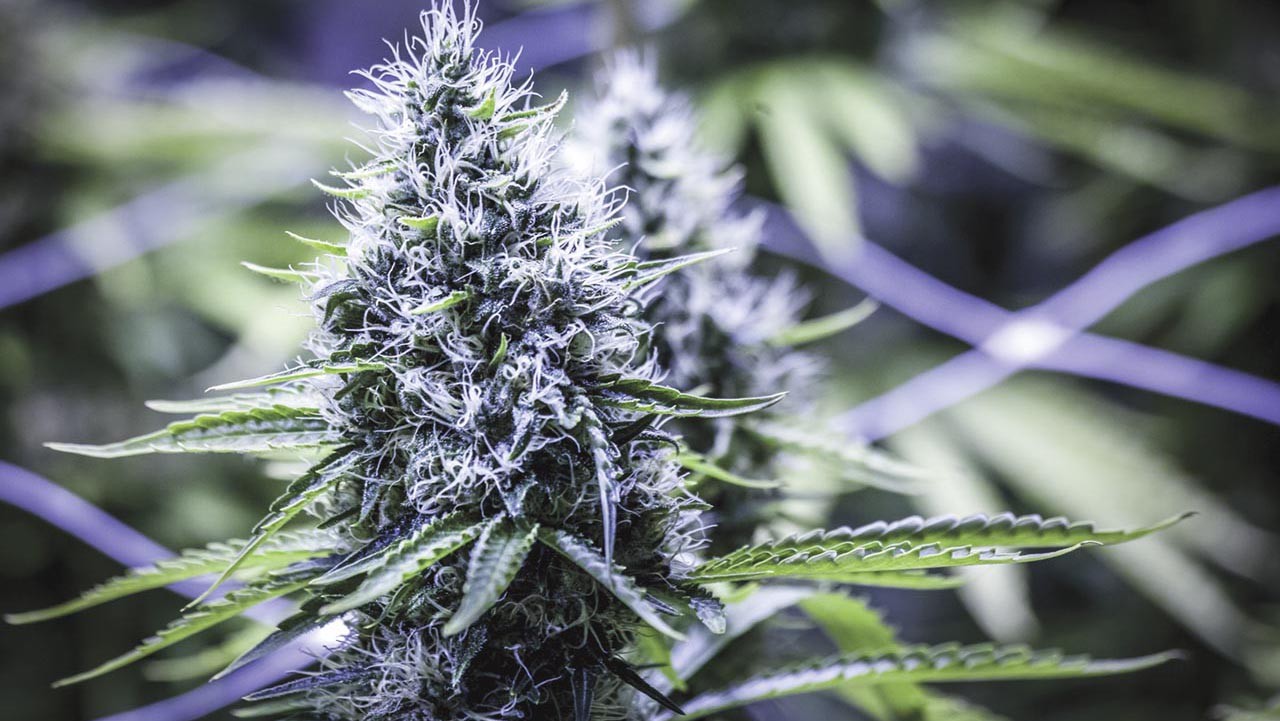
In the day-to-day hubbub of the emergent cannabis business, a perverse fact is often forgotten: the police in California are now working to protect weed dealers and users. The weed dealers in question are businesses legally selling recreational cannabis. If illegal activity threatens this legal business and its customers, it’s the responsibility of law enforcement to step in, which it does in a few different ways.
It’s good that it does so, but it’s also a bad sign, given the levels at which police resources are being deployed to bust up illegal pot grows and shut down unlicensed shops. It means there is serious market dysfunction, mainly thanks to government policy. For instance, in some towns, police are dispatched to protect cannabis businesspeople when they haul their cash to city halls to pay their taxes. They have to pay in cash because, thanks to the fact that pot is still illegal at the federal level, banks are leery of doing business with cannabis merchants, many of whom are forced to do all their business in cash.
But the chief way the police protect pot businesses is to bust illegal cannabis operations, which are flourishing in the state despite legalization — yet also because of it. Again, good for the cops, and the state and local governments that put them to work. But those same governments are responsible for the problems they’re sending the police out to solve for them.
In January, the state’s Cannabis Advisory Committee issued a report on the state’s black market in cannabis. The problem, the committee concluded, is “a lack of enforcement.” But when voters passed Proposition 64 in 2016 to legalize recreational pot, the promise was that a legal market would displace the illicit market. That hasn’t happened. According to the cannabis analytics firm New Frontier Data, California’s illicit market was worth about $3.7 billion last year — four times the size of the legal market. Meanwhile, the state is collecting far less tax revenue than was promised. The committee’s conclusion — endorsed by Gov. Gavin Newsom — ignores the causes of the problem, and focuses on its results.
About 80 percent of the pot grown in California comes from illicit farms. Much of it is shipped eastward, to be sold in states where it is still illegal. But a lot of that pot is sold to Californians, too, often through unlicensed pot shops. That’s because state policies are making it impossible to create a functioning market: state taxes are ridiculously high, as are some local taxes — as in Oakland. Getting a license to open a cannabis business is arduous, dissuading many people from even trying. And thanks to the fact that local governments get to decide whether cannabis can be sold within their borders, about 80 percent of the state’s cities and towns are not served by a cannabis shop. As a result, only 600 or so retail shops are operating in California. In Colorado, which has about one-sixth of California’s population, there are about 560 shops up and running.
Some local governments are seeing the light. Berkeley cut its sales tax in half last year, to 5 percent. Oakland’s tax is still at 10 percent, but the City Council is now considering following Berkeley’s lead and cutting the its tax at least in half. The Oakland Cannabis Business Council has told city hall that about half of the pot businesses in the city are considering giving up and closing down. And it’s not like people would be lining up to take their place.
On top of the 10 percent of revenues that Oakland pot businesses pay to the city, they also pay another 10 percent in state sales taxes, plus a 15 percent state excise tax on the cost of goods. Then there’s the $9.25-per-ounce cultivation tax levied on bud; leaves are taxed at a lower rate.
Assemblyman Rob Bonta (D-Oakland) has proposed a “bammer” solution: his bill, AB-286, would cut the excise tax from 15 percent to 11 percent, but only until 2022, when it would go right back up to its current level. The bill would also suspend the cultivation tax until 2022, but it would leave the sales tax at 10 percent. In announcing his bill in January, Bonta said: “Once the legal marketplace has established its roots … the tax rates will return.” Yet the theory that that state can jumpstart the industry by removing a couple of percentage points off the tax burden for, at most, a couple of years seems dubious at best. The more likely scenario is that the marketplace might establish some roots, only to have them ripped up again by the state before a single new stem had poked through the earth.











